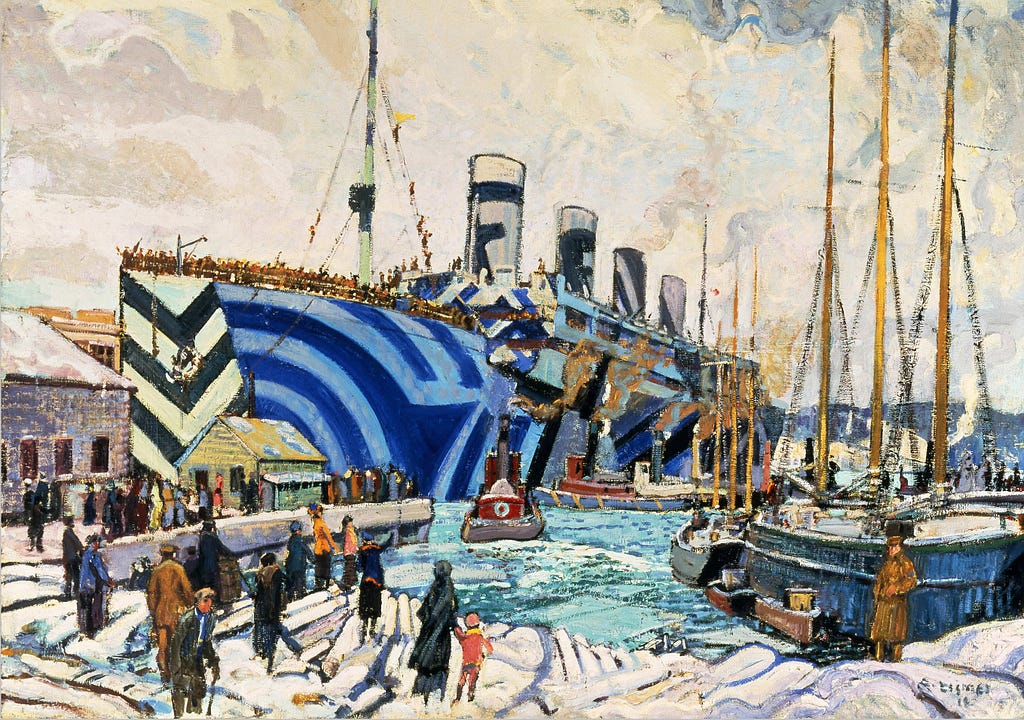essays
Short Story Thursday Presents: Ocean Fiction (Part Three)

by Jacob Tomsky

[DISCLAIMER: The post below involves Short Story Thursdays alone and is in no way affiliated with any pop-up ads or sidebars you may be presented with on this site that are also advertizing a free short story a week. If you like the shit below, emailing shutyourlazymouthandread@shortstorythursdays.com is the only way to join. It’s a super long email address, I know. Sorry. But I hope you like it. And I hope you do it. Thank you.]
Hello. My name is Jacob Tomsky and I wrote this salacious, trashy book about the hotel business which sold well and got the Internet and some major hotel chains fiercely mad at me. But, as they say, never that now.
Because I am here to talk to you about reading and shit. About getting classic literature in your life, once a week, via email. Because I run this non-profit called Short Story Thursdays and that is exactly what we do. You email me and I promise I will take care of you and cherish you as a person and force feed you great short stories, once a week, painlessly, and introduce them with vibrant intro emails wherein I make jokes and curse.
Any further info needed about me, or this organization, or why I started it, or what my apartment looks like can be discovered in these two ways:
1- This super tight article I wrote about SST and why I started it: So You Hate Short Stories?
2- This single-take video where I am sitting in my own apartment and just scriptlessly bullshitting about SST: Video Introduction
But I am here at Electric Literature to give you a taste of what you’ll get if you sign up for Short Story Thursdays.
This is the third part of a four-part series, all fiction related to ocean travel because, at this point in our journey, I am on a freighter, crossing the Atlantic, seven days in on a ten-day journey, returning to America, just me and the crew on this gigantic container ship.
If you wish to read about the first two parts of my trip you can find them here and here.
Those first two posts, and the accompanying fiction, were all about fear. Because this was a rather terrifying thing to do. But at this point? I was no longer afraid. I hadn’t gotten seasick. I hadn’t gotten scurvy. I had not, as of yet, skidded on a deck puddle and hurled myself over the railing into the cold, briny maw of ocean.
Seven days in. And I had learned so much! Here is a rapid-fire list of some things I learned:
FREIGHTER FACTS:
1- The damn thing goes 13 miles an hour. I was crossing the entire Atlantic Ocean going 13 miles an hour.
2- The Captain will give you shit, constantly, and lie to you, and fuck with you, non-stop.
3- If you think you are good at ping-pong you are not good at ping- pong, these motherfuckers are exceptional at ping pong.
4- The store is called the “slopchest” and only open once a week and sells in bulk. Case of beer = $16. Bottle of vodka = $9. Can of salted nuts = $3.
5- Seasickness takes varying forms. Some people vomit. Some experience headaches. Others battle intense drowsiness the entire journey. And the boat can rock two ways: Pitching, which is back to front, so intense it seems like the freighter catches fucking air and then slams its nose down hard in the waves. And rolling, which is side-to-side and sends you stumbling into the wall.
6- I experienced no seasickness at all because I am a badass bitch.
7- No one talks while they eat. Meals are just a bunch of sailors chewing morosely in silence. It’s very strange at first but then you get used to it and when someone talks you’re all, “Will you shut the fuck up and just eat please? Goddamn shut up.”
8- You get really hungry at sea. And the meals are huge. And you eat it all. It’s called “freighter pigging.”
9- Just kidding it’s not called freighter pigging.
10- Day after day of only ocean. Pitching, rolling, storms, trying to soap up in the shower while holding on to a safety bar so you don’t smash your face against the wall, instant coffee, getting tossed around in bed randomly through the night, watching “Sleepless in Seattle” again because that’s the only movie in your cabin.
11- Don’t say, “I hope I get to experience at least some bad weather.” They will hate you. Don’t say, “It’s really beautiful out there today.” They will hate you.
12- Being on the bridge for a four-hour watch is mind-erasing. They call it “the blind man’s television.” Seriously you guys the ocean just goes on and on and it’s crazy.
So, after completing seven days out of ten, I’d almost made it home. Almost. And that’s the kind of thing that gets you thinking, right? What is there waiting for me at home? Who is there waiting for me? Prior to the freighter I’d been in Africa for four months and maybe my friends had found other friends? Maybe when I came back and was all, “Hey friends let’s hang out because I missed you,” they’d be all, “Hey well listen we found a replacement friend for you while you were gone and he’s got more money than you but we will certainly call you if something opens up, friend-wise.”
My friends didn’t do that because my friends are radical. They were there, in New York, waiting for me, prepared to get me historically drunk. But I would walk to the railing with a shitty cup of instant coffee and stare forward, toward the new world, or whatever, my old world. And that’s what today’s selection is about. It’s about a man who leaves his home for love. He leaves to earn money, to secure a future for the woman he loves, and he loves her so very much. But, if you stay away too long, you start to worry about returning. You’re sitting there, older now, with all of your numerous flaws fully visible, piled in your lap like dirty socks, and you start to question if they’d even want you anymore. Are you worth wanting? Have you changed? Surely your face, during all of this time, has taken a beating. You’re uglier now. Sadder. Aloner. Now you’re there at the railing with your instant coffee and you start to cry maybe because leaving was hard but, apparently, coming home is harder. What the fuck is that? But you can’t stop the boat. It’s churning along over the bowl of the ocean. The boat is like the arrow of time and it cannot be reversed.
I mean, doesn’t time make us worse, you guys? Tomorrow won’t we be less worthy of love than we are today?
I don’t know. And it bums me out to think of it. And in the story below by Ernest Dowson, published in 1922, called, “Statute of Limitations,” we will be offered one solution to that very dilemma.
It’s all very sad, you guys. But we are almost home. Perhaps they are waiting for us at home, arms wide and ready, ready to love our new handful of flaws, our new busted face. But perhaps there will be no one there. Perhaps it’s best to never even find out one way or the other.
Leaving is so hard. Coming home is so hard. Love is so hard.
I hope you like the story and email me at shutyourlazymouthandread@shortstorythursdays.com if you want to read other stories with me forever, once a week.
But I think this story is wonderful, I really do. And all of this is really starting to make me sad.
See you next week. That’ll be my last one here.
Love,
Jacob Tomsky

Short Story Thursday Presents…
“A Voice in the Night” (1907) by William Hope Hodgson
During five years of an almost daily association with Michael Garth, in a solitude of Chili, which threw us, men of common speech, though scarcely of common interests, largely on each other’s tolerance, I had grown, if not into an intimacy with him, at least into a certain familiarity, through which the salient feature of his history, his character reached me. It was a singular character, and an history rich in instruction. So much I gathered from hints, which he let drop long before I had heard the end of it. Unsympathetic as the man was to me, it was impossible not to be interested by it. As our acquaintance advanced, it took (his character I mean) more and more the aspect of a difficult problem in psychology, that I was passionately interested in solving: to study it was my recreation, after watching the fluctuating course of nitrates. So that when I had achieved fortune, and might have started home immediately, my interest induced me to wait more than three months, and return in the same ship with him. It was through this delay that I am enabled to transcribe the issue of my impressions: I found them edifying, if only for their singular irony.
From his own mouth indeed I gleaned but little; although during our voyage home, in those long nights when we paced the deck together under the Southern Cross, his reticence occasionally gave way, and I obtained glimpses of a more intimate knowledge of him than the whole of our juxtaposition on the station had ever afforded me. I guessed more, however, than he told me; and what was lacking I pieced together later, from the talk of the girl to whom I broke the news of his death. He named her to me, for the first time, a day or two before that happened: a piece of confidence so unprecedented, that I must have been blind, indeed, not to have foreseen what it prefaced. I had seen her face the first time I entered his house, where her photograph hung on a conspicuous wall: the charming, oval face of a young girl, little more than a child, with great eyes, that one guessed, one knew not why, to be the colour of violets, looking out with singular wistfulness from a waving cloud of dark hair. Afterwards, he told me that it was the picture of his fiancee: but, before that, signs had not been wanting by which I had read a woman in his life.
Iquique is not Paris; it is not even Valparaiso; but it is a city of civilisation; and but two days’ ride from the pestilential stew, where we nursed our lives doggedly on quinine and hope, the ultimate hope of evasion. The lives of most Englishmen yonder, who superintend works in the interior, are held on the same tenure: you know them by a certain savage, hungry look in their eyes. In the meantime, while they wait for their luck, most of them are glad enough when business calls them down for a day or two to Iquique. There are shops and streets, lit streets through which blackeyed Senoritas pass in their lace mantilas; there are cafes too; and faro for those who reck of it; and bull fights, and newspapers younger than six weeks; and in the harbour, taking in their fill of nitrates, many ships, not to be considered without envy, because they are coming, within a limit of days to England. But Iquique had no charm for Michael Garth, and when one of us must go, it was usually I, his subordinate, who being delegated, congratulated myself on his indifference. Hard-earned dollars melted at Iquique; and to Garth, life in Chili had long been solely a matter of amassing them. So he stayed on, in the prickly heat of Agnas Blancas, and grimly counted the days, and the money (although his nature, I believe, was fundamentally generous, in his set concentration of purpose, he had grown morbidly avaricious) which should restore him to his beautiful mistress. Morose, reticent, unsociable as he had become, he had still, I discovered by degrees, a leaning towards the humanities, a nice taste, such as could only be the result of much knowledge, in the fine things of literature. His infinitesimal library, a few French novels, an Horace, and some well thumbed volumes of the modern English poets in the familiar edition of Tauchnitz, he put at my disposal, in return for a collection, somewhat similar, although a little larger, of my own. In his rare moments of amiability, he could talk on such matters with verve and originality: more usually he preferred to pursue with the bitterest animosity an abstract fetish which he called his “luck.” He was by temperament an enraged pessimist; and I could believe, that he seriously attributed to Providence, some quality inconceivably malignant, directed in all things personally against himself. His immense bitterness and his careful avarice, alike, I could explain, and in a measure justify, when I came to understand that he had felt the sharpest stings of poverty, and, moreover, was passionately in love, in love comme on ne l’est plus. As to what his previous resources had been, I knew nothing, nor why they had failed him; but I gathered that the crisis had come, just when his life was complicated by the sudden blossoming of an old friendship into love, in his case, at least, to be complete and final. The girl too was poor; they were poorer than most poor persons: how could he refuse the post, which, through the good offices of a friend, was just then unexpectedly offered him? Certainly, it was abroad; it implied five years’ solitude in Equatorial America. Separation and change were to be accounted; perhaps, diseases and death, and certainly his ‘luck,’ which seemed to include all these. But it also promised, when the term of his exile was up, and there were means of shortening it, a certain competence, and very likely wealth; escaping those other contingencies, marriage. There seemed no other way. The girl was very young: there was no question of an early marriage; there was not even a definite engagement. Garth would take no promise from her: only for himself, he was her bound lover while he breathed; would keep himself free to claim her, when he came back in five years, or ten, or twenty, if she had not chosen better. He would not bind her; but I can imagine how impressive his dark, bitter face must have made this renunciation to the little girl with the violet eyes; how tenderly she repudiated her freedom. She went out as a governess, and sat down to wait. And absence only rivetted faster the chain of her affection: it set Garth more securely on the pedestal of her idea; for in love it is most usually the reverse of that social maxim, les absents ont toujours tort, which is true.
Garth, on his side, writing to her, month by month, while her picture smiled on him from the wall, if he was careful always to insist on her perfect freedom, added, in effect, so much more than this, that the renunciation lost its benefit. He lived in a dream of her; and the memory of her eyes and her hair was a perpetual presence with him, less ghostly than the real company among whom he mechanically transacted his daily business. Burnt away and consumed by desire of her living arms, he was counting the hours which still prevented him from them. Yet, when his five years were done, he delayed his return, although his economies had justified it; settled down for another term of five years, which was to be prolonged to seven. Actually, the memory of his old poverty, with its attendant dishonours, was grown a fury, pursuing him ceaselessly with whips. The lust of gain, always for the girl’s sake, and so, as it were, sanctified, had become a second nature to him; an intimate madness, which left him no peace. His worst nightmare was to wake with a sudden shock, imagining that he had lost everything, that he was reduced to his former poverty: a cold sweat would break all over him before he had mastered the horror. The recurrence of it, time after time, made him vow grimly, that he would go home a rich man, rich enough to laugh at the fantasies of his luck. Latterly, indeed, this seemed to have changed; so that his vow was fortunately kept. He made money lavishly at last: all his operations were successful, even those which seemed the wildest gambling: and the most forlorn speculations turned round, and shewed a pretty harvest, when Garth meddled with their stock.
And all the time he was waiting there, and scheming, at Agnas Blancas, in a feverish concentration of himself upon his ultimate reunion with the girl at home, the man was growing old: gradually at first, and insensibly; but towards the end, by leaps and starts, with an increasing consciousness of how he aged and altered, which did but feed his black melancholy. It was borne upon him, perhaps, a little brutally, and not by direct self-examination, when there came another photograph from England. A beautiful face still, but certainly the face of a woman, who had passed from the grace of girlhood (seven years now separated her from it), to a dignity touched with sadness: a face, upon which life had already written some of its cruelties. For many days after this arrival, Garth was silent and moody, even beyond his wont: then he studiously concealed it. He threw himself again furiously into his economic battle; he had gone back to the inspiration of that other, older portrait: the charming, oval face of a young girl, almost a child, with great eyes, that one guessed one knew not why, to be the colour of violets.
As the time of our departure approached, a week or two before we had gone down to Valparaiso, where Garth had business to wind up, I was enabled to study more intimately the morbid demon which possessed him. It was the most singular thing in the world: no man had hated the country more, had been more passionately determined for a period of years to escape from it; and now that his chance was come the emotion with which he viewed it was nearer akin to terror than to the joy of a reasonable man who is about to compass the desire of his life. He had kept the covenant which he had made with himself; he was a rich man, richer than he had ever meant to be. Even now he was full of vigour, and not much past the threshold of middle age, and he was going home to the woman whom for the best part of fifteen years he had adored with an unexampled constancy, whose fidelity had been to him all through that exile as the shadow of a rock in a desert land: he was going home to an honourable marriage. But withal he was a man with an incurable sadness; miserable and afraid. It seemed to me at times that he would have been glad if she had kept her troth less well, had only availed herself of that freedom which he gave her, to disregard her promise. And this was the more strange in that I never doubted the strength of his attachment; it remained engrossing and unchanged, the largest part of his life. No alien shadow had ever come between him and the memory of the little girl with the violet eyes, to whom he at least was bound. But a shadow was there; fantastic it seemed to me at first, too grotesque to be met with argument, but in whose very lack of substance, as I came to see, lay its ultimate strength. The notion of the woman, which now she was, came between him and the girl whom he had loved, whom he still loved with passion, and separated them. It was only on our voyage home, when we walked the deck together interminably during the hot, sleepless nights, that he first revealed to me without subterfuge, the slow agony by which this phantom slew him. And his old bitter conviction of the malignity of his luck, which had lain dormant in the first flush of his material prosperity, returned to him. The apparent change in it seemed to him just then, the last irony of those hostile powers which had pursued him.
‘It came to me suddenly,’ he said, ‘just before I left Agnas, when I had been adding up my pile and saw there was nothing to keep me, that it was all wrong. I had been a blamed fool! I might have gone home years ago. Where is the best of my life? Burnt out, wasted, buried in that cursed oven! Dollars? If I had all the metal in Chili, I couldn’t buy one day of youth. Her youth too; that has gone with the rest; that’s the worst part!’
Despite all my protests, his despondency increased as the steamer ploughed her way towards England, with the ceaseless throb of her screw, which was like the panting of a great beast. Once, when we had been talking of other matters, of certain living poets whom he favoured, he broke off with a quotation from the ‘Prince’s Progress’ of Miss Rossetti:
‘Ten years ago, five years ago,
One year ago,
Even then you had arrived in time;
Though somewhat slow;
Then you had known her living face
Which now you cannot know.’
He stopped sharply, with a tone in his voice which seemed to intend, in the lines, a personal instance.
‘I beg your pardon!’ I protested. ‘I don’t see the analogy. You haven’t loitered; you don’t come too late. A brave woman has waited for you; you have a fine felicity before you: it should be all the better, because you have won it laboriously. For heaven’s sake, be reasonable!’ He shook his head sadly; then added, with a gesture of sudden passion, looking out over the taffrail, at the heaving gray waters: ‘It’s finished. I haven’t any longer the courage.’ ‘Ah!’ I exclaimed impatiently, ‘say once for all, outright, that you are tired of her, that you want to back out of it.’ ‘No,’ he said drearily, ‘it isn’t that. I can’t reproach myself with the least wavering. I have had a single passion; I have given my life to it; it is there still, consuming me. Only the girl I loved: it’s as if she had died. Yes, she is dead, as dead as Helen: and I have not the consolation of knowing where they have laid her. Our marriage will be a ghastly mockery: a marriage of corpses. Her heart, how can she give it me? She gave it years ago to the man I was, the man who is dead. We, who are left, are nothing to one another, mere strangers.’
One could not argue with a perversity so infatuate: it was useless to point out, that in life a distinction so arbitrary as the one which haunted him does not exist. It was only left me to wait, hoping that in the actual event of their meeting, his malady would be healed. But this meeting, would it ever be compassed? There were moments when his dread of it seemed to have grown so extreme, that he would be capable of any cowardice, any compromise to postpone it, to render it impossible. He was afraid that she would read his revulsion in his eyes, would suspect how time and his very constancy had given her the one rival with whom she could never compete; the memory of her old self, of her gracious girlhood, which was dead. Might not she too, actually, welcome a reprieve; however readily she would have submitted out of honour or lassitude, to a marriage which could only be a parody of what might have been?
At Lisbon, I hoped that he had settled these questions, had grown reasonable and sane, for he wrote a long letter to her which was subsequently a matter of much curiosity to me; and he wore, for a day or two afterwards, an air almost of assurance which deceived me. I wondered what he had put in that epistle, how far he had explained himself, justified his curious attitude. Or was it simply a resume, a conclusion to those many letters which he had written at Agnas Blancas, the last one which he would ever address to the little girl of the earlier photograph?
Later, I would have given much to decide this, but she herself, the woman who read it, maintained unbroken silence. In return, I kept a secret from her, my private interpretation of the accident of his death. It seemed to me a knowledge tragical enough for her, that he should have died as he did, so nearly in English waters; within a few days of the home coming, which they had passionately expected for years.
It would have been mere brutality to afflict her further, by lifting the veil of obscurity, which hangs over that calm, moonless night, by pointing to the note of intention in it. For it is in my experience, that accidents so opportune do not in real life occur, and I could not forget that, from Garth’s point of view, death was certainly a solution. Was it not, moreover, precisely a solution, which so little time before he had the appearance of having found? Indeed when the first shock of his death was past, I could feel that it was after all a solution: with his ‘luck’ to handicap him, he had perhaps avoided worse things than the death he met. For the luck of such a man, is it not his temperament, his character? Can any one escape from that? May it not have been an escape for the poor devil himself, an escape too for the woman who loved him, that he chose to drop down, fathoms down, into the calm, irrecoverable depths of the Atlantic, when he did, bearing with him at least an unspoilt ideal, and leaving her a memory that experience could never tarnish, nor custom stale?









